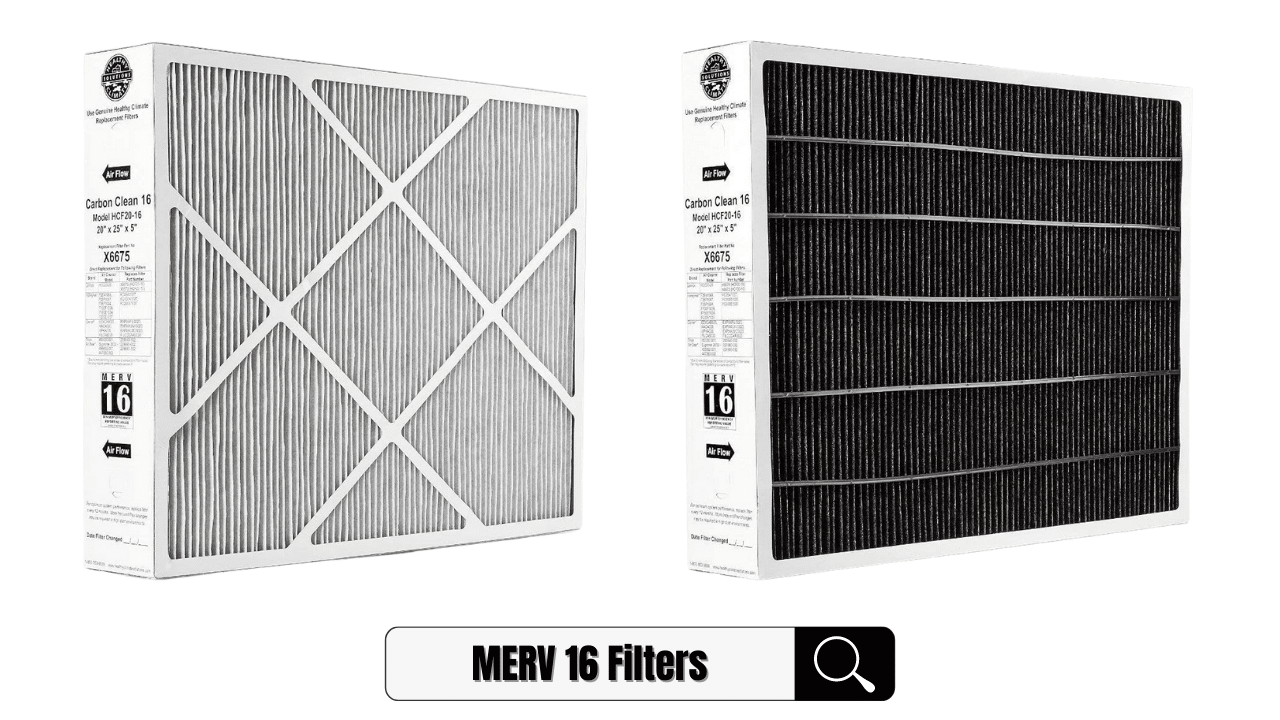When it comes time to choose a home air filtration system, it is essential to select a filter that will suit your needs. The MERV rating system is handy for this purpose, and the higher the rating, the more efficient the filtration will be.
Having clean air in your home is essential to living a healthy life and maintaining a high quality of life.
Let's look at MERV ratings, but more specifically, MERV 16 filters and how effective they are in filtering out viruses and pollutants from the air in your home.
What is the MERV Rating System?

The MERV (Minimum Efficiency Reporting Values) rating system is a great reference when picking a filter for your home or business. Choosing the right air purification system and the right air filter is crucial to keep yourself and anyone who enters your home or business safe from airborne illnesses.
The rating that is given to a filter denotes the best for your needs. The rating indicates the size and type of particles the filter will catch and remove from your air. The higher the rating, the smaller the particle that will be captured. (Related: Is it Worth Spending More Money on An Air Filter with a Higher MERV Rating?)
MERV Rating Chart
The Importance of Improving your Indoor Air Quality
Indoor air quality is affected by many factors and can be 5x more polluted than the air outside. Since it has nowhere to go, the air can become stale and of poor quality quickly in your home. There are several ways to improve your home's air quality, such as increasing circulation, regular vacuuming, and dusting, and using a quality air filter.
Some benefits of improving your air quality in your home are:
MERV 16 Filters and Viruses
Using a high-quality air filter can effectively remove viruses from the air and prevent people in the home from breathing in contaminated air. A MERV 16 filter can capture particles as small as 0.03 microns with a 98% efficiency. Making this filter perfect for anyone with allergies, breathing problems, compromised immune systems or anyone concerned with removing viruses and other impurities from the air.
If someone in your house comes down with a cold, using a MERV 16 air filter can drastically reduce the chances of others becoming ill in the home.
Incorporating an air purifier and utilizing other strategies, you can quickly clear your home of viruses, some additional measures to take when someone in your household is sick:
MERV 16 Filters and Pollutants
Using a MERV 16 filter in your home to improve air quality can efficiently remove common pollutants from the air. Helping you and your loved one's breathe easier and reducing any breathing problems or allergies in your home.
Some common pollutants found in the house that can affect the air quality are:
Capturing these tiny particles with a 98% efficiency, the difference will be noticeable, and breathing will be easier in your home.
Types of Air Filters for Your Home
A few questions you should consider while choosing a filter for your home are:
The more you answer yes to the higher MERV rating of a filter you should consider. There are endless choices when it comes to filters to improve the air quality in your home.
Here are four more common filters that are found for home air purifications:
- 1High-efficiency Particle Air Filters (HEPA): If you or a loved one suffer from a respiratory condition or allergies, investing in a HEPA filter with a high MERV rating would be well worth the money. These are some of the best filters for your home.
- 2Pleated Air Filters: These filters generally have a MERV rating of around 5 or above and are distinguishable by their appearance. As the name suggests, they are pleated, like an accordion look, and they are made from paper, cotton, and polyester.
- 3Fiberglass Air Filters: These filters are very common due to being low-cost, disposable, and efficient. They rate in the range of 1 -4 on the MERV rating scale.
- 4Ultraviolet Light Filters: Highly efficient in killing bacteria and viruses the UV light is efficient in killing germs and returning clean air back into circulation in your home. UV filters can vary in their MERV rating but are very efficient.
Pros and Cons of using MERV 16 Filters
Pros:
Cons:
Final Thoughts
MERV 16 filters are very effective when it comes to removing viruses and pollutants from the air in your home. If you or a loved one in your home suffer from allergies or respiratory problems, using a filter with a MERV 16 rating would be recommended for your home.
Using a filter of this high quality does come with a tighter maintenance schedule to maintain efficiency, but you will have noticeably cleaner air in your home.
